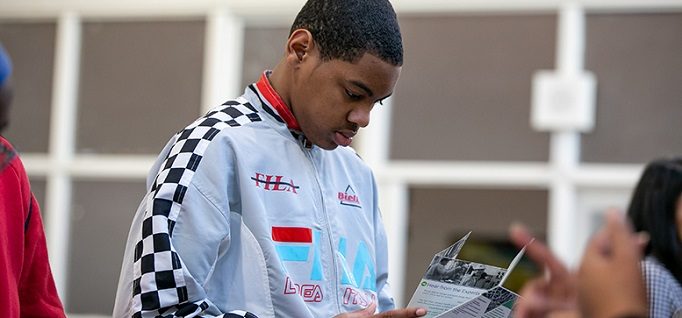Pandemic compounds inequities
By Ellie Ashford
May 20, 2020
The coronavirus pandemic is exacerbating inequities for many African-American students in California, according to community college leaders.
Compton College has always targeted assistance to African-American students and others in need, but the pandemic has “made it more clear about their lack of basic needs,” said President Keith Curry. “COVID is adding another layer of impact.”
College leaders need to connect with students to learn the best ways to help them, he said. For example, when Compton offered technology and free meals on campus, many students were wary of going outside and didn’t have the means to pick them up, Curry said.
As a result, Compton mailed laptops and mobile hot spots to students’ homes and partnered with Everytable to deliver healthy meals to them.
Compton is using $1.6 million of its $2.5 million in federal CARES Act funds for grants to help students with housing, food and other emergency needs.
Curry and Ed Bush, president of Consumnes River College, had long planned a roundtable on equity issues featuring California Community Colleges Chancellor Eloy Ortiz Oakley, state legislators, community college leaders, African-American organization leaders and students.
When the pandemic hit, that event pivoted to a virtual town hall on April 22, and many of the speakers addressed the need for race-conscious policies to promote student success, along with the impact of COVID on African-American students.
Compton also partnered with Pam Luster, president of San Diego Mesa College, on Twitter conversations with colleagues, industry leaders and foundations around equity under the hashtag #EquityAvengers.
Reaching out
“The pandemic didn’t create inequities. It exacerbated inequities already there,” Bush said.
When Consumnes River College (CRC) transitioned to distance learning, it also decided to step up equity efforts, he said. CRC hosted professional development training on equity and directed faculty to develop “equity-minded syllabi” to mitigate a disproportionate impact on African-American students.
CRC had previously adopted a caseload approach to counseling and student success as part of its guided pathways structure, so those support teams called every student to find out what they needed.
Even so, a disproportionate number of African-American and Latinx students withdrew from courses since March 1 due to myriad reasons, ranging from a lack of technology to unemployment, Bush said.
One issue they found is that when parents lost their jobs, students had to work and often were hired as essential workers at places like Walmart, which also made attending college more difficult.
Even though CRC provided laptops and mobile wifi hotspots to students, they still had problems connecting to their classes, Bush said. CRC staff found there were household issues, with multiple people – including teleworking parents and younger siblings needing access to the internet – and there wasn’t enough quiet space for studying.
“We didn’t anticipate that family members would move in together, adding to overcrowded households,” said Teresa Aldredge, a counselor and faculty member at CRC and president of the Umoja Community Education Foundation, a statewide organization that focuses on helping African-American community college students succeed.
Students also are struggling with time management at home, Aldredge said. Many have trouble juggling classes, schoolwork and jobs when “they’re no longer around individuals who motivate them,” she said.
Counselors are doing what they can to offer that helpful nudge.
“We’re calling them once a week to get them to focus on one thing at a time,” Aldredge said.
Extra support
CRC already had many initiatives to help students struggling with food and housing insecurity and the digital divide, such as two-week hotel vouchers and emergency cash assistance, Aldredge noted. But when the pandemic hit, the number of students applying for emergency aid tripled.
It’s also been difficult when African-American students lose extracurricular support groups, like Umoja, which provides a culturally relevant learning community with students participating in the same classes and extracurricular activities together.
To make up for that, Umoja is connecting with students through “weekly virtual village time,” with such activities as self-care workshops and drawing lessons, Aldredge said.
There have also been biweekly check-ins from CRC’s chapter of African American Male Education Network and Development (A2MEND), a program aimed at fostering success of black male community college students in California.
There’s more to the story! Read the full CC Daily article here.


